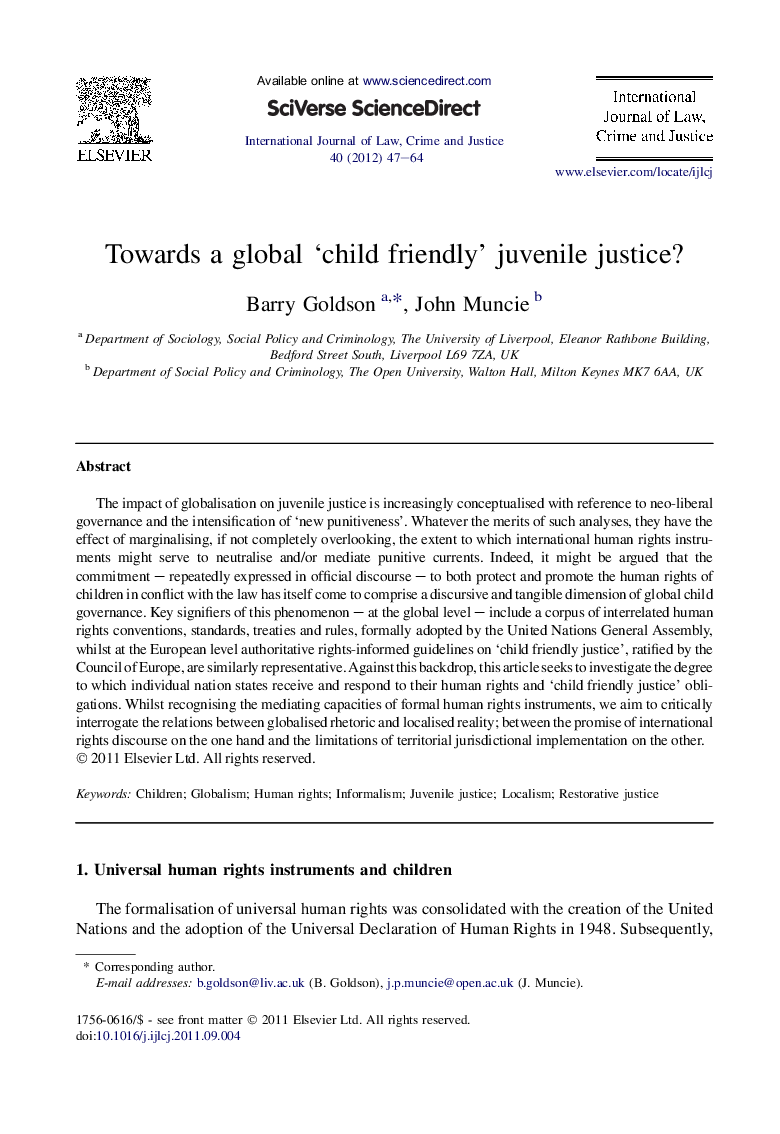| Article ID | Journal | Published Year | Pages | File Type |
|---|---|---|---|---|
| 1098063 | International Journal of Law, Crime and Justice | 2012 | 18 Pages |
The impact of globalisation on juvenile justice is increasingly conceptualised with reference to neo-liberal governance and the intensification of ‘new punitiveness’. Whatever the merits of such analyses, they have the effect of marginalising, if not completely overlooking, the extent to which international human rights instruments might serve to neutralise and/or mediate punitive currents. Indeed, it might be argued that the commitment – repeatedly expressed in official discourse – to both protect and promote the human rights of children in conflict with the law has itself come to comprise a discursive and tangible dimension of global child governance. Key signifiers of this phenomenon – at the global level – include a corpus of interrelated human rights conventions, standards, treaties and rules, formally adopted by the United Nations General Assembly, whilst at the European level authoritative rights-informed guidelines on ‘child friendly justice’, ratified by the Council of Europe, are similarly representative. Against this backdrop, this article seeks to investigate the degree to which individual nation states receive and respond to their human rights and ‘child friendly justice’ obligations. Whilst recognising the mediating capacities of formal human rights instruments, we aim to critically interrogate the relations between globalised rhetoric and localised reality; between the promise of international rights discourse on the one hand and the limitations of territorial jurisdictional implementation on the other.
